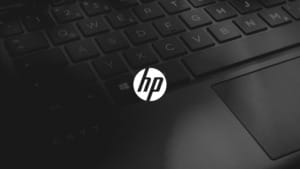US court rules Google can keep Apple deal but must share search data with rivals
A US court ruled Google can keep its Apple deal but must share search data with rivals, marking a key antitrust decision.

In a landmark antitrust decision, a US judge has ruled that Google may retain control of its Android operating system, Chrome browser, and its lucrative agreement with Apple, but must share search data with competitors in a move designed to increase market fairness.
Table Of Content
Judge rules against monopoly claims
The ruling, delivered by District Judge Amit Mehta, follows a five-year legal battle in which regulators accused Google of maintaining an unlawful monopoly in online search and related advertising. While the court declined to order a breakup of Google’s key products, it mandated that the company provide rivals with access to its search data.
The decision is seen as an important step in creating more opportunities for emerging competitors in the online search sector, particularly those building artificial intelligence-powered tools. Judge Mehta highlighted that “artificial intelligence companies such as OpenAI, developing advanced chatbots and AI search engines, are better placed to compete with Google than any search engine developer has been in decades”.
According to analysts, access to Google’s data could help smaller companies accelerate their technologies, reduce the firm’s dominance, and encourage fresh innovation in a market long defined by Google’s strength.
Apple agreement remains intact
The judgment also allows Google to continue its multi-billion-dollar arrangement with Apple, under which the company pays an estimated US$20 billion annually to remain the default search engine across Apple devices.
The news was welcomed by investors, with Alphabet shares climbing 7.2% and Apple’s share price increasing by 3% in extended trading following the announcement.
By securing its relationship with Apple, Google maintains a central advantage in the mobile search market, where default positioning remains highly valuable for capturing user traffic.
Restrictions and future challenges
Despite avoiding a forced breakup, Google will face new limits on its business practices. Judge Mehta’s decision prohibits the company from entering exclusive contracts that block manufacturers or mobile carriers from preloading rival search engines.
Recent partnerships with firms such as Samsung, Motorola, AT&T, and Verizon already show movement in this direction, giving competitors more freedom to reach consumers through pre-installed apps.
Google has expressed concern about the ruling, warning that sharing search data could undermine user privacy. The company is reviewing the decision and intends to appeal, a process that could stretch over several years and potentially reach the US Supreme Court.
The case is part of a broader wave of bipartisan scrutiny targeting the power of large technology firms. Other ongoing investigations and lawsuits involve Meta, Amazon, and Apple, reflecting a global trend towards tighter regulation of Big Tech.














